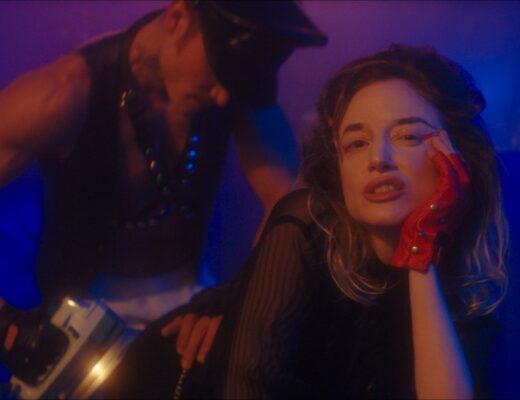While fellow 2021 NYAFF entry Joint admirably (if ultimately unsuccessfully) attempts to reconfigure the Yakuza picture for a modern, 21st-century audience, Kazuya Shiraishi’s Last of the Wolves does the exact opposite, taking the fundamental scenario of Fukasaku’s classic Graveyard of Honor and the Battles Without Honor and Humanity series and ramping them up with contemporary cinematography and rapid-fire editing. There’s no interest in interrogating a genre here, instead an unabashed adherence to it, content to scribble within familiar lines. A direct sequel to 2018’s The Blood of Wolves, Last picks up three years later in 1991, as the tentative truce between the Odani and Jinsei clans has held steady. Hiroshima police officer Shuichi Hioka (Tori Matsuzaka), one time apprentice to the now deceased Shogo Ogami, keeps tabs on the gangs and runs an undercover informant named Chinta who feeds him intel. More interested in real estate deals than brawls, the various Yakuza clan elders have settled down and kept the tenuous peace (shades of Joint yet again). Into this relative calm comes Uebayashi (Suzuki Ryohei), a Yakuza foot soldier just released from prison who wants revenge against both clans for the death of his boss, Itako. Unbeknownst to Uebayashi is that, three years ago, Hioka and Ogami facilitated the extra-judicial killing of Itako as the price of brokering peace between the various factions. And so the two enter into a collision course, with a mountain of collateral damage left in their wake.
This is an extremely streamlined version of an expansive narrative that unfolds over almost 145 minutes. There’s a huge number of ancillary characters, and screenwriter Ikegami Junya, working from Yuko Yuzuki’s 2015 novel, indulges in all manner of flashbacks and table-setting scenes. Uebayashi is essentially Heath Ledger’s Joker dropped into the middle of a classic crime saga, refusing to play by any rules and murdering at will. There’s no honor among thieves here, as he mercilessly climbs the clan hierarchy and taunts the police. It’s an outstanding performance by Ryohei, whose volatile energy infuses the film’s bloated runtime with a dangerous edge. As Uebayashi attempts to incite war, Hioka scrambles to keep the peace, forcing young Chinta into increasingly dangerous situations as he frantically tries to keep tabs on Uebayashi. But there’s too much filler here, including bits about Chinta’s sister, who runs a bar frequented by gangsters, Hioka’s older partner (who doesn’t approve of Hioka’s reckless style), as well as some out-of-left-field twists involving secretive factions within the police force itself. Last of the Wolves features plenty of brawls and shootouts, but nothing fans of the genre haven’t seen before. It’s occasionally startlingly violent – Uebayashi likes to remove his victim’s eyeballs after (and in one instance before) killing them. Inevitably, the bloodshed leads to a final confrontation between cop and gangster, as well as some handwringing over the thin blue line and how cops and gangsters are sometimes the opposite sides of the same coin — all hallmarks of the genre, and all dutifully reproduced here. Fans keeping track of modern day Japanese gangster epics might get a kick out of both Joint and Last of the Wolves, but anyone else is likely to be frustrated. Everything old is new again, apparently.
Published as part of NYAFF 2021 — Dispatch 3.







